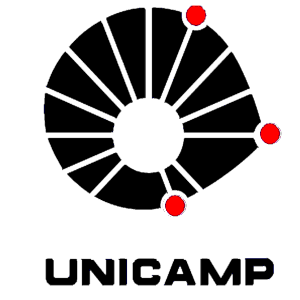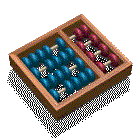

MO412 / MC908 - Network Science
Instructor: Joao Meidanis, meidanis at unicamp dot br
Mondays and Wednesdays, 7-9pm, online. Check Graduate Schedule
Second Semester, 2021
Overview
This is an introductory course on Network Science. We will closely follow Barabási's book, a classic in the field.
We will follow an online model of education. The instructor will record pieces of lectures, based on slides, and make them available to students beforehand, together with the slides in PDF. Students can watch these pieces at their own convenience. During class, we will have a videoconference for comments, questions, and suggestions, but attendance will not be required. However, we invite all students to join our first remote class on August 9th for general information and course outline. Please send email to the instructor to receive the meet link for the first class.
For their own presentations, students will follow a similar course of action. They will produce videos with their presentations, based on the guidelines, and make them available to the instructor. Assingments will be handed-out via our Google Classroom. Students will preferably hand-in their assignments via Classroom also. A private email to the instructor can be used when the student experiences problems with the Classroom.
Office hours
By appointment only.
Program and Schedule
| MO412A | Graph Algs. / Network Science | 2nd. Term | |
| MC908A | Special Topics: Comp. Theory | 2021 | |
| Instructor: João Meidanis | |||
| PRELIMINARY SCHEDULE | Last Modified 2021-08-01 | ||
| Mo/We | Date | Topic | Book Chapter |
| Mon | Aug 09 | Course Outline | |
| Wed | Aug 11 | Introduction (slides) | 1 (video) |
| Mon | Aug 16 | Calculus (slides) | (video) |
| Wed | Aug 18 | Differential Equations (slides) | (video) |
| Mon | Aug 23 | Graph Theory, Statistics (slides) | 2 (video) |
| Wed | Aug 25 | Graph Theory (slides) | 2 (video) |
| Mon | Aug 30 | Graph Theory (slides) | 2 (video1) (video2) |
| Wed | Sep 01 | Random Graphs (slides) | 3 (video1) (video2) |
| Mon | Sep 06 | Holiday | |
| Wed | Sep 08 | Random Graphs (slides) (slides) | 3 (video1) (video2) |
| Mon | Sep 13 | Class Network hand-out | |
| Wed | Sep 15 | Scale-free Property (slides) | 4 (video1) (video2) |
| Mon | Sep 20 | Scale-free Property (slides) | 4 (video3) (video4) |
| Wed | Sep 22 | Hands-on class (Gephi) (Networkx) | (video) |
| Mon | Sep 27 | Barabasi-Albert Model (slides) | 5 (video) |
| Wed | Sep 29 | Preliminary Project Presentations | |
| Mon | Oct 04 | Barabasi-Albert Model (slides) | 5 (video) |
| Wed | Oct 06 | Evolving Networks (slides) | 6 (video) |
| Mon | Oct 11 | Holiday | |
| Wed | Oct 13 | Evolving Networks (slides) | 6 (video) |
| Mon | Oct 18 | Class Network hand-in | |
| Wed | Oct 20 | Degree Correlations (slides) | 7 (video) |
| Mon | Oct 25 | Degree Correlations (same slides) | 7 (video) |
| Wed | Oct 27 | Network Robustness (slides) | 8 (video) |
| Mon | Nov 01 | Holiday | |
| Wed | Nov 03 | Network Robustness (slides) | 8 (video) |
| Mon | Nov 08 | Communities (slides) | 9 (video) |
| Wed | Nov 10 | Communities (slides) | 9 (video) |
| Mon | Nov 15 | Holiday | |
| Wed | Nov 17 | Spreading Phenomena (slides) | 10 (video) |
| Mon | Nov 22 | Spreading Phenomena (slides) | 10 (video) |
| Wed | Nov 24 | Spreading Phenomena (slides) | 10 (video) |
| Mon | Nov 29 | Final Presentations | |
| Wed | Dec 01 | Final Presentations | |
| Mon | Dec 06 | Quiz | |
| Wed | Dec 08 | Holiday | |
| Mon | Dec 13 | Study week | |
| Wed | Dec 15 | Exam |
Grading
Grading will be based on a number of Assignments, a Quiz, and Final Project. The Assignments are individual, but the Final Project is to be carried out by a group of 2 students, preferably with different backgrounds. If the number of students in the class is odd, we will allow one group with 3 members. In the Final Project, the group will select a network of interest, map it out, and analyze it.
The Quiz will be administered with multiple choice questions created by the students, and possibly edited by the instructor, collected in our Official Quiz Blog. The Assignments are of two different types. The first type consists in solving homework problems assigned weekly by the instructor. The second type consists in analyzing the class network, which will be given to all students at an appropriate time during the semester.
For the Final Project, the groups must present their work as a 10-minute presentation on video, describing the data, how it was collected, several measures about the network, and insights gained by doing the analysis. The video presentation must begin by stating the title, name of group members, their program, and the date.
There will be midterm Preliminary Project Presentations to help groups refine their projects. Groups must prepare 5-minute presentations, based on no more than 5 slides. Further guidelines about the Assignments / Final Project will be given during the course.
Each type of assignment will give rise to a numeric grade in the range 0 to 10. The contributions of each type to the final grade are as follows:
| Class Network | 15% |
| Quiz | 25% |
| Homework | 30% |
| Final Project | 30% |
Numeric grades will be converted to letter grades accorging to the following scheme:
| 8.5 to 10 | A |
| 7 to 8.5 | B |
| 5 to 7 | C |
| 0 to 5 | D |
Late penalties
For any of the Assignments, there will be penalties for late work. People who do not hand in their solutions on time will incur a late penalty of 20% of the grade per day, computed proportionally with the granularity of 1 minute. So you are 1 day late your penalty is 20%; 2 days late, 40%; 1 hour late, 0.833%; and so on.
Fraud
Any attempt at fraud in this course will entail final grade equal to zero for all involved, with possible additional sanctions, as deemed necessary by the University administration.
References
Network Science. Albert-László Barabási. Cambridge University Press, 2016.
Introduction to Algorithms, 3rd Edition. Thomas H. Cormen, Charles E. Leiserson, Ronald L. Rivest and Clifford Stein. The MIT Press, 2009.
Algorithms, 4th Edition. Robert Sedgewick, Kevin Wayne. Addison-Wesley Professional, 2011.
Credits
Network Icon from PNGFLY.